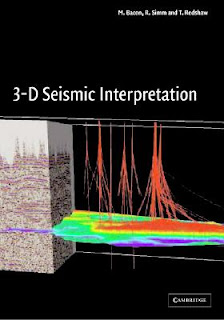If you want to find oil and gas accumulations, or produce them efficiently once found then you need to understand subsurface geology. At its simplest, this means mapping subsurface structure to find structures where oil and gas may be trapped, or mapping faults that may be barriers to oil flow in a producing field. It would be good to have a map of the quality of the reservoir as well (e.g.i ts thickness and porosity), partly to estimate the volume of oil that may be present in a given trap, and partly to plan how best to get the oil or gas out of the sound. It would be better still to see where oil and gas are actually present in the subsurface reducing the risk of drilling an unsuccessful exploration well, or even following the way that oil flows throught he reservoir during production to make sure we don't leave any more of it than we can help behind in the ground. Ideally, we would like to get all this information cheaply which in the offshore case means using as few boreholes as possible.
One traditional way of understanding the subsurface is from geological mapping at the surface. In many areas however, structure and stratigraphy at depths of thousands of feet cannot be extrapolated from geological observation at the surface. Geological knowledge then depends on boreholes. They will give very detailed information at the points on the map where they are drilled. Interpolating between these control points, or extrapolating a way from them into undrilled areas is where geophysical methods can be most helpful.
Although some use has been made of gravity and magnetic observations which respond to changes in rock density and magnetisation respectively it is the seismic method that is by far them most widely used geophysical technique for subsurface mapping. The basic idea is very simple. Low-frequency sound waves are generated at the surface by a high-energy source (for example a small explosive charge). They travel down through the earth, and are reflected back from the tops and bases of layers of rock where there is a change in rock properties. The reflected sound travels back to the surface and is recorded by receivers resembling microphones. The time taken for the sound to travel from the source down to the reflecting interface and back to the surface tells us about the depth of the reflector, and the strength of the reflected signal tells us about the change of rock properties across the interface. This is similar to the way a ship's echo sounder can tell us the depth of water and whether the seabed is soft mud or hard rock.
So if you want to work in the sector oil and gas you have to know seismic method for sure because this method is the most powerful than any others methods in subsurface mapping.

.jpg)





